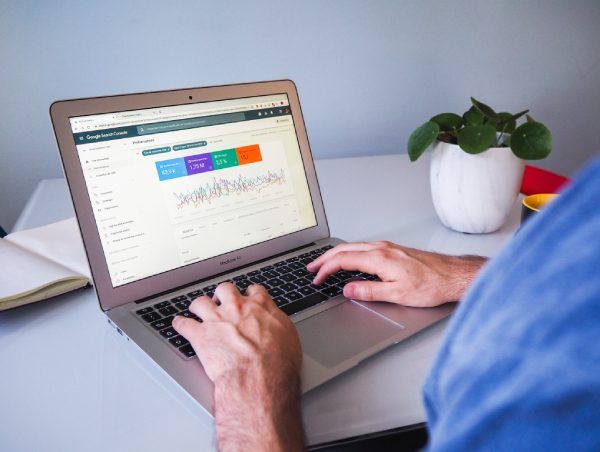Understanding Google Search Crawling, Indexing, & Ranking
In our previous discussion, we talked about Helpful Tools for SEO Analysis and how these tools can help to boost revenue for your business.
In this post, we’ll go over the phases of how Google Search operates in the context of your website. Technical knowledge in this aspect can assist you in resolving crawling difficulties, getting your pages indexed, and optimising your site’s appearance in Google Search.
What is Google Search?
Google Search is a wholly automated search engine that uses software known as web crawlers to browse the web regularly to identify pages to add to its index.
Most pages mentioned in the results are not submitted manually but are discovered and added automatically as crawlers traverse the web.

What is a Crawler?
Google discovers new web pages to include in its index. When Google finds the URL of a page, it may visit the page to see what’s on it. Googlebot, often known as a crawler, robot, bot, or spider, is the software that fetches the necessary data.
Googlebot utilises an algorithm to choose which sites to crawl, how frequently to crawl them, and how many pages to get from each site.
Google’s crawlers are configured to avoid exploring the site too quickly to prevent overwhelming it. This approach is dependent on the site’s replies and Search Console settings.
Remember: Googlebot does not crawl every page it finds. The site owner may block some sites from crawling, while others may be inaccessible without logging in.
The 3 Phase of Google Search
1. Crawling
Google uses crawlers, which are automated programmes that extract text, photos, and videos from web pages. Crawling depends on Google’s crawlers, spiders or bots being able to visit the site.
- URL Discovery
The first stage is to discover which websites exist. Since there is no centralised registry of all web pages, Google must continually search for new and updated pages. It will then add them to the list of available pages. This process is referred to as “URL discovery”
During the crawl, Google renders the website and runs any JavaScript it finds using a current version of Chrome. Rendering is crucial because many websites rely on JavaScript to deliver material to the page, and without rendering, Google may not see that content.
- Refresh
Google finds changes in web pages that are already indexed. Some pages are recognised because Google has visited them previously. When Google follows a link from an already-known page to a new one, it usually discovers new pages. Also, other pages are typically discovered when you submit a sitemap.
2. Indexing
Google analyses the website’s text, photos, and video files and records the results in the Google index, a massive database.
Google attempts to grasp what a page is about after crawling it. This step, known as indexing, consists of processing and evaluating textual material and important content tags and properties.
- Canonicalisation
During indexing, Google assesses if a page is a duplicate or canonical of another page on the internet.
If you have a single page that is accessible through various URLs, or separate pages with comparable content, such as a page with both a mobile and a desktop version, Google considers them to be duplicate copies of the same page.
Google will select one URL as the canonical version and crawl it. The canonical page is the one that appears in search results and is referred to as the canonical URL.
- Clustering
Google will use clustering to determine which is canonical. It will first group web pages with similar content and then choose the one that best represents the group.
The other pages in the cluster are other versions that may be delivered in different settings as if the user is searching on a mobile device or looking for a specific page from that cluster.
- Signal Gathering
Google also records signals about the canonical page and its contents, which may be utilised in the subsequent stage when the page is ranked in search results. Some signs include the page’s language, the country where the material is localised, the page’s usability, and so on.
- Storage
The information gathered about the canonical page, and its cluster might be saved in the Google index, a massive database on hundreds of machines.
Remember: Indexing is not assured; not every page processed by Google is indexed. Indexing is also affected by the page’s content and information.
Common Indexing difficulties include low-quality material, too extensive metadata, and robots’ meta rules that prevent indexing.
3. Ranking
When a user searches on Google, Google produces results relevant to the user’s query, and these results are sorted from most relevant to least relevant. Several factors influence relevance, including information such as the user’s location, language, and device.
For example, searching for an “automotive repair shop” in Australia yields different results from searching in New Zealand.
Google Search Console may indicate that a page has been indexed but does not appear in search results. This might be due to the page’s content being unrelated to visitors’ searches, low-quality material, or robots’ meta restrictions.
What is Google Search Console?
Google Search Console, known previously as Google Webmaster Tools, is a free tool that allows anybody with a website to monitor and optimise their site’s organic visibility. Viewing your referring domains, mobile site performance, rich search results, and most-trafficked queries and pages are all part of this.
Google Search Console shows how Google crawls, indexes, and delivers websites. This can assist website owners in tracking and optimising Search performance. There is no need to log in to the tool daily. If Google discovers new concerns on your site, you’ll receive an email from Search Console informing you.

Things to Keep in Mind
Google does not accept payment to crawl or rank a site more frequently. Even if your page adheres to the Google Search Essentials, Google cannot promise that it will be crawled, indexed, or ranked. If someone tells you differently, then they are incorrect.
Google is constantly working to enhance its algorithms. Check updates from the Google Search Central blog from time to time so you can be aware of these developments.
Knowledge is Power
Search engines play an essential role in everyday life. We use search engines like Google to get information on anything. Understanding how you can improve crawling and indexing helps you avoid typical traps that might prevent your key pages from being found.
Want to optimise your website and set yourself up for success properly? Get the help you need from experienced professionals who can deliver quality results and ensure you grow your brand.
